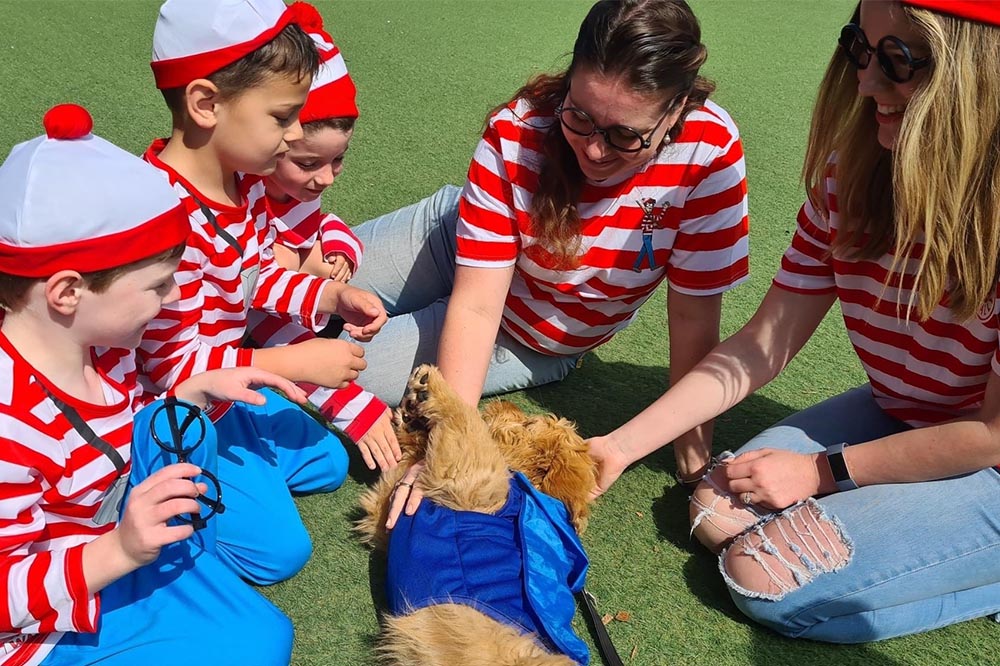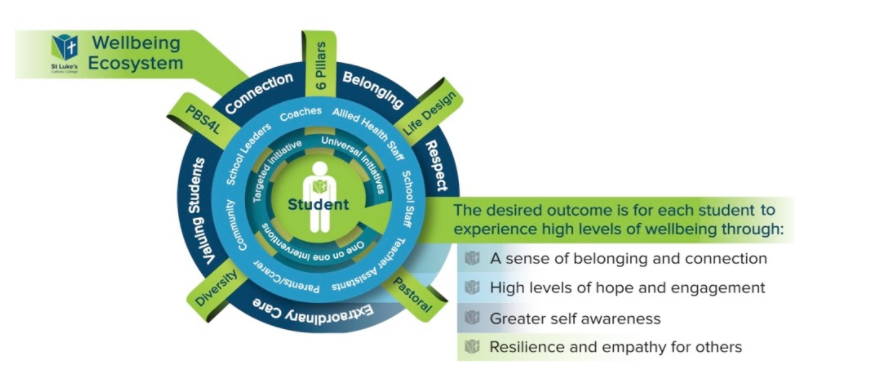
Anoushka Houseman loves her job, and from a quick glance at her daily routine, it’s easy to see why.
As Santa Sophia Catholic College’s ‘Wellbeing Leader’, Houseman has been given the unique opportunity to set up whole school wellbeing structures that are improving the lives of students across the entire campus.
“My professional background as a registered Clinical Psychologist allows me to see problem behaviour through a different lens to what is typical in schools,” Houseman told The Educator.
“So, my role is to help students, staff and parents to make sense of emotions and behaviour and work out what interventions are most likely to be effective in helping to improve the student’s functioning and sense of wellbeing”.
Her role also includes analysing data on student behaviour, wellbeing and attendance to plan timely and relevant interventions and stop students from falling between the cracks.
“Some of the most positive and uplifting results have been seeing students who were previously unable to function effectively in school, growing in confidence and managing their fears, emotions or behaviour more positively and feeling proud of the changes they have then made,” Houseman said.
“I’m also super proud of being part of one of the only school’s that I am aware of where every teacher has a dedicated formal hour of wellbeing professional development with me built into their timetable in their first year of service”.
Houseman said the College has built a culture in which every teacher, whatever their speciality, sees student wellbeing as an intrinsic part of their role.
“There is an understanding that positive student wellbeing improves student learning and effective pedagogy in learning helps student wellbeing to flourish”.
Wellbeing as a daily routine
Melinda Bowd is the Wellbeing Leader at St Luke’s Catholic College in Sydney. There, Bowd is helping to build a ‘wellness ecosystem’ that is transforming the school at all levels.
At the heart of this ecosystem is meeting the wellbeing needs of each student at the College. To do so, Bowd’s day to day work is focused on establishing preventive and proactive approaches to wellbeing.
“We have thirty minutes of dedicated wellbeing time each day for students in Years 7-10. The week commences with Mindfulness Monday. Activities during this time aim to enhance students’ self- regulation and self-awareness by building the skill of being fully present in the moment,” she said.
“On a Tuesday and Thursday students meet with their Mentor Teacher. This time allows us to address a range of potential wellbeing issues in a positive, supportive way with the Mentor Teacher who acts as a ‘champion’ for the young people in their group”.
On Wednesdays, students develop a sense of accomplishment through acts of service. Progressively, students will lead activities during this time. Bowd said the aim is for these sessions to be led by students who will share how they engaged their interest and their powerful voices to make a difference in the world around them.
“Each Thursday, as part of the Mentoring session, we have a dedicated gratitude practice in order to build upon positive, optimistic thinking,” Bowd explained.
At the end of the week, students get to enjoy ‘Feel Good Friday’, which helps them build important teamwork skills and encourages them to be physically active.

Bowd said the College’s wellbeing focus, embedded in a positive psychology approach, cultivates a strong sense of belonging and connection for each and every student on campus.
“Students will benefit from this intentional and deliberate scheduling of wellbeing which will see them better prepared for the rigours of learning, develop greater empathy for others and more resilience for one’s self,” she said.
“We are in the very early days of establishing our Wellbeing Ecosystem but the most uplifting aspect of the work thus far is the positive and supportive way in which the staff are embracing the importance of student wellbeing”.
Bowd said the role of schools and the positive relationships teachers have with their students play such a vital protective factor.
“St Luke’s teachers are certainly passionate about making a difference in the lives of young people,” she said.
“The ultimate goal is that our intentional and strategic approach to wellbeing will create the conditions for all to flourish. It certainly feels like I have the dream job”.


